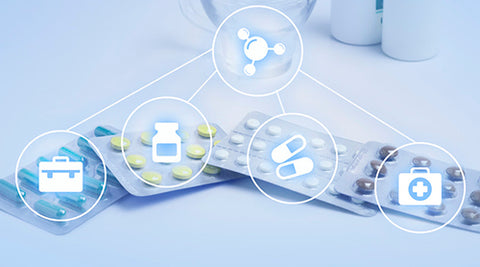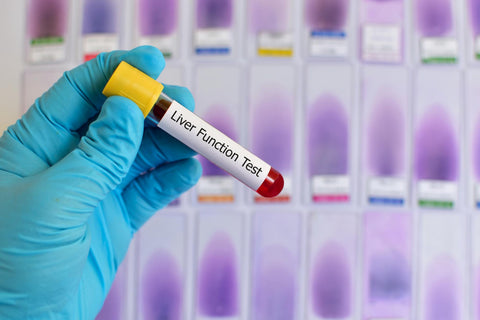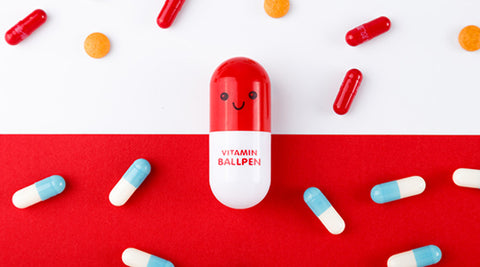
TOP 1: Take medicine following the happenings of symptoms
People with diabetes are prone to estimate the quality of blood glucose control based on their so-called symptoms. Due to the fact that blood sugar is often high without obvious symptoms, there is little difference between taking medicine and not taking medicine for a certain period of time. In this way, they believe that blood sugar can be controlled without taking medicine.
In fact, this approach is a sword to healthy conditions. If blood sugar is too high, they may not feel anything once or twice. However, people should imagine what garlic will be like when it is soaked in sugar water for a long time. Hence, it's too late to allow you to feel uncomfortable.
The dosage of hypoglycemic drugs is arbitrarily reduced and even stopped, which often leads to poor blood sugar control. People are able to control their blood sugar level with diet and exercise, which applies this situation to the early detected with better pancreatic islet function, and milder illness. Most people with diabetes need medication treatment.
TOP 2 More eating, more drugs
The treatment of diabetes is a comprehensive process, covering diet control, exercise and medication. Clinical practice has fully proven that drug therapy needs to be combined with diet control and exercise so as to deliver tangible results. The efficacy will be greatly reduced if the diet is not well-controlled.

Some people reckon that after taking medicine, it doesn't matter even if more eating. Under such a situation, the result is not conducive to blood sugar control. Besides, it will increase the body weight, increase insulin resistance, and lead blood sugar to suffer from fluctuations.
TOP 3 Hypoglycemic drugs damage liver and kidney
Some drugs do cause an increase in liver transaminase and cholestatic jaundice, which can be seen among fewer people with diabetes. Generally speaking, as long as liver kidney itself is in good condition, in accordance with the doctor's guidelines, drug safety can be guaranteed and it will exert little effect on the liver and kidney function.
In fact, the consequences of uncontrolled high blood sugar are much more serious than the adverse reactions that may occur when taking drugs. When people with diabetes first come to see doctors, doctors will often check the patients’ liver and kidney function systematically, and then choose the appropriate medicine according to the specific situation.

TOP 4 Only taking medicine without recheck
Regular monitoring of blood glucose during medication can not only understand the condition of the disease and the effect of treatment, but also serve as an essential basis for selecting drugs and adjusting the dosage. With the extension of course, many sulfonylurea effect classes of antidiabetic drugs may be decreased: how to deal with the failure of hypoglycemic drugs? How long do people need to change the type of drugs?
Some people pay less attention to regular review, noting that they have not stopped treatment, psychological sense of security can be ensured. However, if the drug fails to achieve the corresponding effects, all these efforts are in vain.
TOP 5 Increase the dosage for reducing blood sugar quickly
The human body's environment is difficult to fully adapt to the sudden drop in blood sugar. Therefore, blood sugar control should be steadily decreased.
Some people think that they feel that their blood sugar is not in good condition. The dosage is increased without authorization in order to enable the blood sugar to drop quickly. It is easy to lead to a hypoglycemic reaction, and increase adverse drug reactions as well.

Sugar control does not lie in fast speed, but sheds light on steadily. Therefore, it is advisable to take the medicine scientifically under the guidance of doctors.
TOP 6 Change the medicine without doctors' prescription
As a matter of fact, the effect of some hypoglycemic drugs usually boasts a gradual process. With the extension of the medication time, the effect of the medicine gradually appears.
Some hypoglycemic drugs (for example, insulin sensitizers) will not deliver the best effect until half a month to one month. Hence, people should not easily assume that a certain drug is not effective.
In most cases, doctors recommend gradually adjusting the dosage of the drug according to the blood sugar level. When the maximum effective dose of the drug is employed, the blood sugar still does not decrease, and then switch to other drugs or combine with other drugs. Frequent changes will allow the effect of the drug to be hard to achieve, and even cause blood sugar fluctuations.
Note: All information on Sinocare blog articles is for educational purposes only. For specific medical advice, diagnoses, and treatment, consult your doctor.
← Older Post Newer Post →
